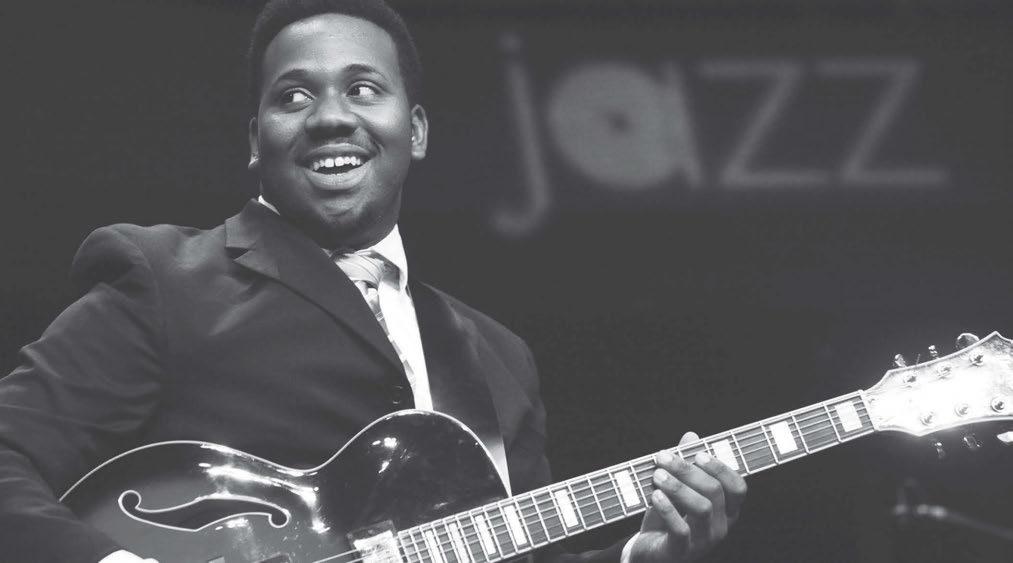
3 minute read
Advocacy in Action, or Advocacy Inaction? Jason
Introduction
One of the greatest challenges we face as music educators is explaining to those outside our field why what we do is important Advocating for our music programs is certainly not a novel concept . Indeed, we have been advocating for music in the schools since Lowell Mason’s “exhibition concert” in 1838, which eventually paved the way for music instruction in Boston’s public schools A local paper reported at the time: The performance of the scholars under his [Mason’s] management was truly remarkable for a readiness in answering every question put to them . The rudiments, as far as they had progressed, seemed to be perfectly familiar, and they appeared to thoroughly understand every illustration on the blackboard… The time and expense required can be but small, and the exercise must be a pleasurable relaxation from severer studies . All instruction is given by means of the blackboard, and no book is used except the little note book of songs; of course everything is done by familiar illustration; slow indeed, as it should be, but sure (cited in Mark & Gary, 2007)
Advertisement
It is clear from this quotation the influence that a quality performance can have on attendees This exhibition concert served as a demonstration of the (unpaid) teaching and learning that was occurring in Mason’s classroom Music eventually found its way into Boston’s public schools because it was deemed “intellectual,” “moral,” and “physical ” Arguably, the global purpose of education has changed little since 1837; that is, are we teaching children the academic, societal, and physical skills necessary to become citizens in a democratic community? It seems that advocacy, and specifically music education advocacy, must begin with answers to these three questions Therefore, the purpose of this article will be to address one of the three “litmus tests” regarding the efficacy of public school music education – Is it intellectual?
Framing What We Do
One of the most successful ways to advocate for music education in the public schools is to frame what we do in a way that best represents the purpose of our subject matter Namely, are we an academic subject, or an extra-curricular activity? It seems that first and foremost, we must remove the word “activity” in everything that we do if we are to be considered an academic area worthy of study It has been suggested that music education’s “identity crisis” may be attributed in large part to a lack of consensus within the profession regarding the role of competition within the school music program Austin (1990) has suggested that as music educators race to be “number one,” students’ educational needs “have frequently taken a back seat to the pursuit of competitive treasures (money, awards, or notoriety)” (p 21) . Many states have chosen to move to a festival or performance assessment model in which music ensembles are adjudicated for the purposes of ensemble growth without ranking ensembles, thus producing one “winner” and several “losers” (i e , contest) With the music performance assessment/festival model, it is argued that education becomes the primary goal, rather than it being a serendipitous by-product as in the contest model In the contest model, the outcome (i e , ranking) becomes the “it,” with its focus on social status or material rewards (Austin, 1990) . In a performance assessment/ festival model, we move from activity to academic subject by placing greater value on competence as opposed to “winning” –competence does not equal competition If the primary goal of our academic programs becomes competence, we move further away from the moniker of “activity,” thus legitimizing our subject area and strengthening our advocacy efforts by making it clear what our students are learning in our classrooms
Being Proactive in Advocacy
Please do not read this sentence . Too late? This brings me to my second point, the “safest”
M. Silveira Oregon State University
programs (i e , those least in danger of being cut) are those that are proactive in their approach to advocacy Once the discussion of reducing funding or eliminating music education personnel within the district begins, thinking about advocacy might be too late As I mentioned above, we must make it clear to those outside of the profession what we are teaching and what our students are learning in the music classroom
In a sense, advocacy is the means by which we translate our music education philosophies into a coherent and effective rationale that can be understood by a variety of stakeholders (Austin & Reinhardt, 1999) While this makes intuitive sense, it often becomes difficult for practicing music educators to be proactive, while still attending to the numerous demands of the job (and life) There are a number of resources for music educators to help them make the case for advocacy (proactively) including information available from NAfME, other websites (see Leung, 2005), and various publications (see Benham, 2011)
Central to a discussion of advocacy is realizing that there are no easy answers or quick fixes For many years, music educators have been caught between advocating for what we believe in (aesthetic goals of our program), and advocating for the utilitarian benefits of our program (SAT scores, graduation rates, etc ) While there is nothing wrong with the utilitarian and ancillary benefits of music instruction, basing our existence on them becomes tenuous, and could lead to an existence in service of those goals Advocating for music’s influence on “general intelligence” (whatever that is), while at the same time advocating for music as its own intelligence (i .e ., Gardner) confuses the message As Demorest and Morrison (2000) opine, “If we
Continued on page 20






